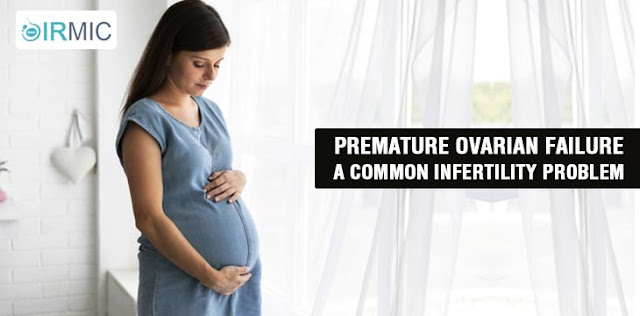Challenges Associated With Infertility Disorder After 40
Age is one of the multiple critical circumstances influencing
fertility and accordingly pregnancy. A woman has a restricted number of
eggs. Before birth, she has 7 million, and during birth, only 1 million
remains. By the time she approaches the time of getting periods she has
500,000 remaining, and at age 38. Finally, she will have none and go
into menopause which occurs after she crosses 51. The ever-decreasing
quantity of eggs which points to 2 important objectives of declining
fertility the first is the nature of eggs surviving in the ovary after
several years gets low and the next most significant cause is that the
chromosomal health of the eggs is also endangered.
A 40-year-old will have the eggs lying for 40 years and at that moment complete the chromosomal division. The result is errors in the distribution, that’s the reason the sign of downs syndrome improves with age. More importantly, the body perceives this error and inhibits implantation from occurring. And if it does the subject fails.
Content Source : https://www.drrksharmaivf.in/challenges-associated-with-infertility-disorder-after-40/
Infertility Disorder Due To Chromosome Division Process
Half the chromosome of the kid comes from the egg and the extra half from the sperm. Sperm chromosomes are uniformly distributing because new sperm are created all the time. In the eggs, however, the chromosomes start the division method before birth and finish it at the time of ovulation, so the egg is resting for the number of years that is the age of the female.A 40-year-old will have the eggs lying for 40 years and at that moment complete the chromosomal division. The result is errors in the distribution, that’s the reason the sign of downs syndrome improves with age. More importantly, the body perceives this error and inhibits implantation from occurring. And if it does the subject fails.
Body Errors
Once in a while the body makes a transgression and lets the fertility go especially and an example is a down syndrome pregnancy, however, the body is very experienced in not letting the pregnancy happen and for every unique baby born there are many pregnancies avoided. That is the reason that with egg donation, the age of the recipient does not affect the success rate as much because the age of the donor is the determining factor.Embryo Health Pre-Implantation Genetic Testing
We also strive to manage the health of the embryo through pre-implantation genetic testing. This agrees with a dual goal one is to recognize the healthy embryos for implantation. The other is to escort in weather it’s useful to proceed in attempts to utilize a patient’s eggs or to proceed to egg donation.What Are Improved Fertility Technology Available?
Improvements in fertility technology have been a driving force in the development of women waiting to have kids. Some choices available to ladies include impotence treatments, such as IVF, freezing eggs when you’re more youthful so that you can have them ready when you’re older, sperm banks and surrogacy.Risk Associated With Infertility After 40
Vaginal delivery may be less apparent after the age of 40. This is essentially due to fertility medicines that can increase the risk of premature birth. You may also be at an enhanced risk of preeclampsia, which may compel a cesarean delivery to save both mother and baby. Even with all of these opportunities accessible, a woman’s fertility rate does decline significantly after 35 years of age. As per various data found one-third of couples after the age of 35 encounter fertility concerns. This may be connected to the following risk factors that progress with age like fewer no of eggs left to fertilize, sick eggs, ovaries can’t free eggs accurately, heightened risk of miscarriage and greater opportunities of health ailments that can hinder fertility. The number of egg cells or oocytes you have also gets decreased significantly after the age of 35.Reference
If you are looking for some valuable suggestion to take care of your precious pregnancy or concerns related to infertility, try meeting Dr. RK Sharma, the best infertility doctor in Delhi.Content Source : https://www.drrksharmaivf.in/challenges-associated-with-infertility-disorder-after-40/




Gynecologist in Indore Near Palasia
ReplyDeleteGynecologist in Indore Near Sapna Sangeeta
Best IVF Center in Indore